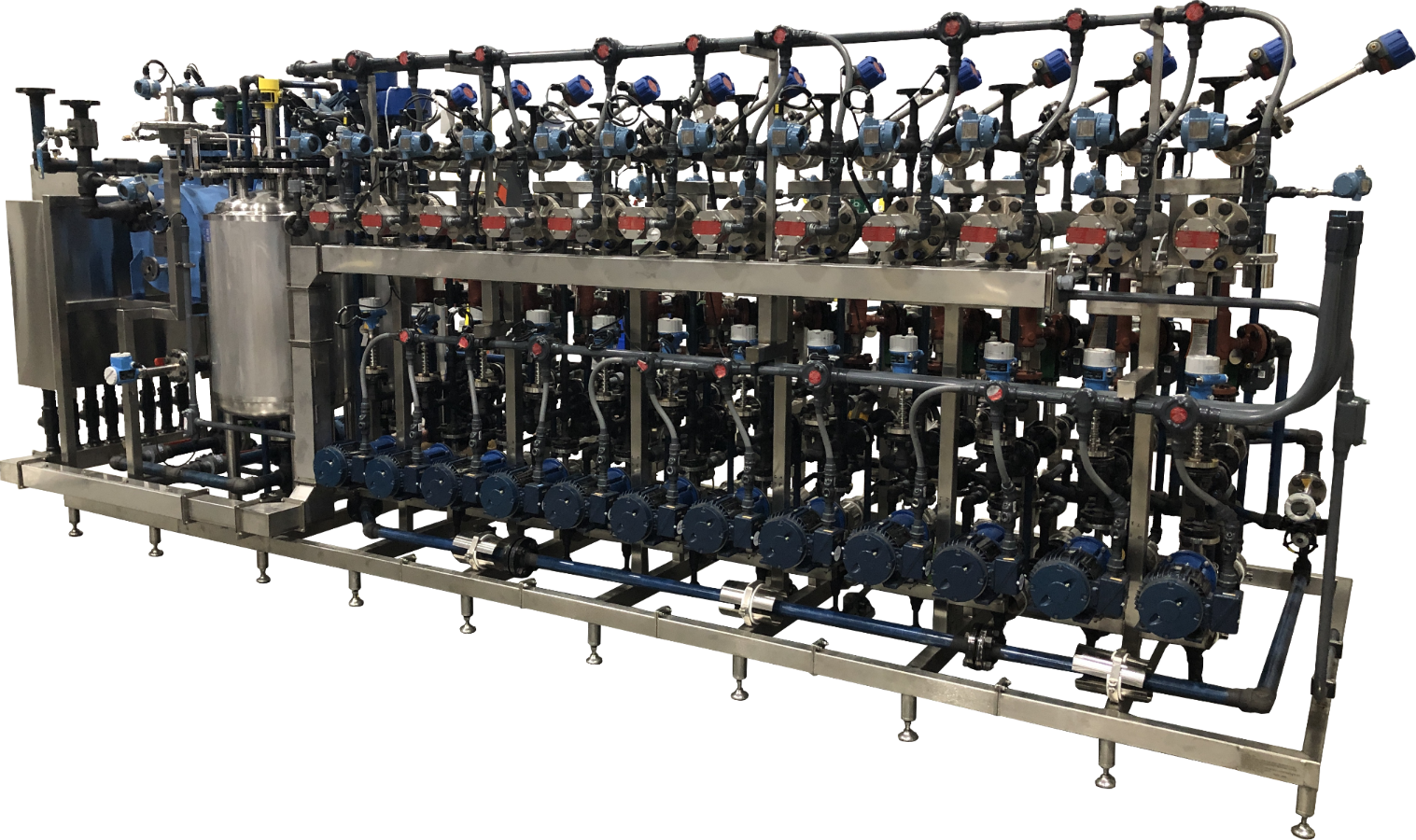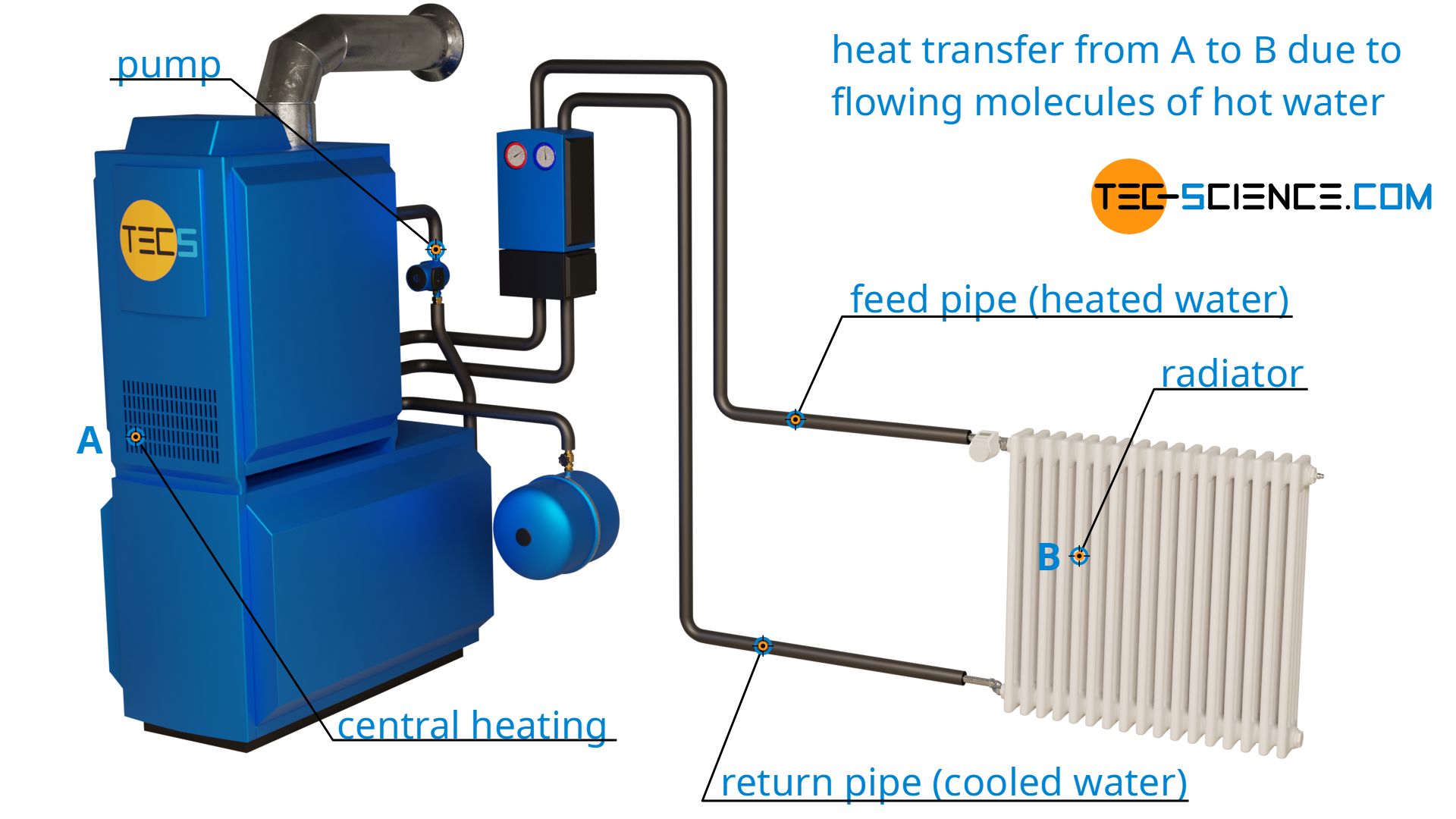The Role of Heat Transfer Solutions in Sustainable Power Solutions for the Future
Heat transfer systems are essential in the pursuit for lasting energy remedies. They maximize thermal energy management, enhancing the performance of sustainable technologies. By using systems like radiation, convection, and transmission, these systems lessen energy losses. Their duty in solar thermal and geothermal applications is especially significant. As advancements arise, the possibility for further advancements elevates crucial concerns about future power techniques. What advancements will shape the landscape of sustainable power?
Comprehending Heat Transfer Solutions

The Value of Thermal Power Monitoring
Efficient thermal power management is important for taking full advantage of power performance and lessening waste in various systems. By regulating temperature and maximizing Heat transfer processes, companies can noticeably reduce energy usage and functional prices. Efficient monitoring includes the execution of advanced technologies and methods that check and control thermal conditions within systems, guaranteeing that energy sources are used successfully. Furthermore, proper thermal power administration adds to lowering greenhouse gas discharges, lining up with international sustainability objectives. It additionally boosts system dependability and efficiency, causing boosted item quality and longer equipment life expectancy. Ultimately, focusing on thermal energy management is a vital step towards developing a lot more lasting energy services and promoting a responsible approach to energy consumption in household and commercial contexts.
Applications of Heat Transfer in Renewable Resource
While numerous renewable resource sources promise sustainability, the reliable application of Heat transfer plays a vital duty in their performance. In wind energy systems, Heat transfer is made use of for generator component cooling, boosting efficiency and durability. Geothermal energy depends on reliable Heat exchange in between the earth's subsurface and the liquid distributing in the system, maximizing power extraction. Biomass power procedures also gain from Heat transfer, as it aids in transforming natural products right into useful gas through pyrolysis and gasification. Additionally, in hydropower, maintaining optimal temperature levels in storage tanks can boost energy outcome. Each of these applications demonstrates the vital value of Heat transfer systems in boosting eco-friendly energy technologies, inevitably adding to a more sustainable energy future.
Enhancing Solar Thermal Power Effectiveness
As solar thermal power systems continue to develop, enhancing their efficiency has actually become important for making the most of power outcome. Advancements in Heat transfer technologies, such as boosted thermal storage materials and ingenious Heat exchangers, play a substantial role in improving efficiency. By making use of advanced materials that have premium thermal conductivity, systems can move and record Heat better. In addition, integrating tracking systems that comply with the sun's course assurances that enthusiasts obtain optimal solar direct exposure throughout the day. Utilizing nanotechnology in solar absorbers can better enhance energy absorption rates. Integrating computerized control systems assists manage and regulate temperatures power circulation successfully, leading to decreased losses and enhanced general system effectiveness. These enhancements pave the way for even more lasting solar thermal power services in the future.
Geothermal Heating: A Lasting Remedy
Geothermal home heating offers a sensible option for sustainable energy, providing substantial environmental advantages through minimized greenhouse gas emissions. Its effectiveness and cost-effectiveness make it an attractive option to conventional furnace. Obstacles related to implementation has to be dealt with to optimize its prospective influence.
Environmental Benefits of Geothermal
Although traditional home heating approaches contribute considerably to greenhouse gas exhausts, geothermal heating provides an engaging alternative that lessens environmental impact. By harnessing the Planet's interior Heat, geothermal systems utilize a renewable resource source, substantially minimizing dependence on nonrenewable fuel sources. This method generates very little carbon emissions, making it a cleaner alternative for domestic and business heating. In addition, geothermal systems advertise power performance, as they require less power contrasted to traditional heating unit. DVS Heat Transfer Systems. The usage of geothermal energy additionally assists in decreasing air contamination, boosting regional air high quality and public health. As a sustainable solution, geothermal home heating supports environment modification reduction efforts, positioning itself as an essential component in the shift towards a greener future
Efficiency and Cost-Effectiveness
Just how does geothermal home heating gauge up in regards to efficiency and cost-effectiveness compared to typical heater? Geothermal home heating shows exceptional effectiveness, commonly accomplishing a coefficient of performance (COP) of 3 to 5, suggesting it creates 3 to 5 systems of Heat for every browse around here single device of electrical energy consumed. This efficiency equates right into lower operating expense, specifically in areas with stable geothermal sources. Initial setup expenses can be greater than standard systems; nevertheless, long-lasting financial savings on energy bills and reduced upkeep expenditures can balance out these in advance investments. In addition, many governments incentivize geothermal systems with refunds and tax obligation credit ratings, enhancing their cost-effectiveness. On the whole, geothermal heating becomes a sustainable and financially feasible alternative to even more conventional heating remedies.
Implementation Obstacles and Solutions
Many obstacles can impede the prevalent execution of geothermal heating unit, in spite of their clear benefits as a sustainable power service. High first installment expenses typically prevent investors and home owners, making financing a considerable obstacle. In addition, the geographical constraints of appropriate geothermal websites limit ease of access in specific regions. Local policies and permitting processes can additionally make complex job advancement, bring about delays. Furthermore, public recognition and understanding of geothermal systems remain reduced, hindering acceptance. To deal with these obstacles, targeted education campaigns can improve public knowledge, while federal government rewards could reduce financial worries. Working together with regional authorities to enhance laws may assist in smoother task approvals, eventually advertising the fostering of geothermal home heating as a viable, sustainable energy alternative.
Developments in Heat Transfer Technologies
Advancements in Heat transfer innovations play an important duty in enhancing power performance and sustainability. Advanced Heat exchangers and phase change materials go to the forefront of these advancements, providing substantial improvements in thermal monitoring. These innovations not just optimize power usage yet additionally add to decreasing ecological influence in different applications.
Advanced Heat Exchangers
Advanced Heat exchangers play a crucial duty in boosting energy effectiveness across numerous applications in sustainable energy services. These tools facilitate the transfer of Heat in between two or more fluids, substantially lowering energy intake in procedures such as commercial heating, cooling, and power generation. Technologies in materials and design, such as making use of nanofluids and small setups, have actually led to improved thermal performance and minimized dimension needs. Furthermore, innovations in digital monitoring and control systems enable maximized operation, more increasing efficiency. By reducing waste Heat and maximizing power recovery, progressed Heat exchangers contribute to lower carbon footprints and support the why not look here change towards environmentally pleasant modern technologies. Their proceeded growth is crucial for accomplishing worldwide power sustainability goals.
Stage Adjustment Products
The assimilation of phase adjustment materials (PCMs) into Heat transfer modern technologies represents a considerable improvement in power management and performance. PCMs absorb and launch thermal energy during their stage changes, allowing effective temperature guideline in structure materials and power systems. By keeping excess Heat throughout height durations and releasing it when need rises, PCMs add to load shifting and power conservation - DVS Heat Transfer Systems. This capability enhances the efficiency of renewable resource systems, particularly in solar thermal applications. In addition, PCMs can improve the thermal convenience of interior settings, reducing dependence on traditional home heating and cooling techniques. As developments in PCM formulations proceed to arise, their role in lasting energy remedies is positioned to grow, offering encouraging methods for future research and application

Future Potential Customers for Heat Transfer in Sustainable Energy
As the demand for lasting energy services proceeds to rise, the function of Heat transfer systems is visit this website ending up being increasingly crucial fit future modern technologies. Innovations in products and layouts are expected to enhance performance in Heat transfer, reducing energy losses in different applications. The assimilation of innovative thermal storage space systems, such as stage change materials and thermochemical storage space, will allow much better management of energy resources. Research right into nanofluids and biomimetic Heat exchangers may further optimize thermal performance. Moreover, the adoption of wise modern technologies will enable real-time surveillance and flexible control of Heat transfer procedures. These innovations are positioned to substantially add to the general effectiveness and sustainability of energy systems, paving the method for a more energy-efficient future.
Frequently Asked Questions
How Can People Apply Heat Transfer Equipment in the house?

Individuals can execute Heat transfer systems at home by installing energy-efficient appliances, making use of glowing heating, and maximizing insulation. These steps improve power efficiency, decrease expenses, and advertise sustainable practices in household atmospheres.

What Are the Prices Related To Installing Heat Transfer Systems?
The prices connected with mounting Heat transfer systems vary extensively, usually including equipment, installment labor, and upkeep. Elements such as system kind, home dimension, and regional regulations greatly affect the general expenditure entailed.
Are There Federal Government Rewards for Heat Transfer System Installations?
Government incentives for Heat transfer system installments vary by region and can include tax obligation refunds, credits, and grants. These monetary advantages aim to urge adoption, inevitably promoting power performance and lowering ecological influence within neighborhoods.
How Do Heat Transfer Solutions Effect Energy Costs?
Heat transfer systems significantly affect energy expenses by optimizing power effectiveness. By boosting the transfer of Heat, these systems minimize power usage, bring about lower energy costs and developing a more sustainable strategy to energy monitoring.
What Maintenance Is Required for Heat Transfer Equipments?
Upkeep for Heat transfer systems consists of regular examinations, cleaning of elements, examining fluid levels, guaranteeing correct insulation, and replacing worn parts. These jobs aid maintain efficiency, avoid failures, and prolong the system's operational life expectancy.
These systems promote the activity of thermal power from one tool to an additional, enabling the transfer of Heat for energy, cooling, or heating generation functions. Geothermal power counts on reliable Heat exchange in between the planet's subsurface and the fluid circulating in the system, taking full advantage of power removal. In addition, geothermal systems advertise power effectiveness, as they need much less energy compared to conventional home heating systems. Advanced Heat exchangers play a crucial duty in enhancing power effectiveness throughout various applications in sustainable power solutions. Heat transfer systems significantly influence energy bills by optimizing energy effectiveness.